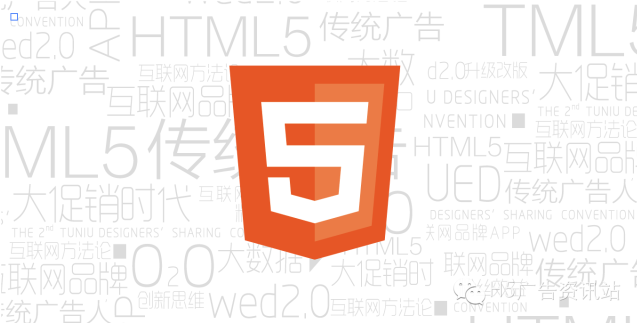10 recommended articles on cross-domain communication
HTML5 provides the function of receiving and sending information between web documents. Using this function, as long as the instance of the window object where the web page is located is obtained, not only web web pages of the same origin (domain + port number) can communicate with each other, but even cross-domain communication can be achieved. Browser support: IE8+, firefox4+, chrome8+ opera10+1. First of all, if you want to receive messages from other windows, you must monitor the message event of the window object, as follows: window.addEventListener("message", function(){},false);2. Secondly, you need to use the postMessage method of the window object to send messages to other windows. The method is defined as follows: otherWindow.postMessage(message, targetOrigin); This method uses 2 parameters, the first One parameter is the text of the message sent, but it can also be any javascript object, and the second
1. How to use postMessage in HTML5 to implement POST cross-domain issues in Ajax

Introduction: HTML5 provides the function of receiving and sending information between web documents. Using this function, as long as the instance of the window object where the web page is located is obtained, not only web web pages of the same origin (domain + port number) can communicate with each other, but even cross-domain communication can be achieved. Browser support: IE8+, firefox4+, chrome8+ opera10+ 1. First of all, if you want to receive messages from other windows, you must monitor the message event of the window object, as shown in the following code: window.addEventListener(“messag..
2. html5 cross-domain communication postMessage

Introduction: Documents under different domain names do not allow access to each other's documents due to security issues, but sometimes it is necessary. Such operation. Therefore, we can generally use window.name, hash, or jsonp to achieve cross-domain access
3. Ajax cross-domain request solution: use JSONP to obtain JSON data

Introduction: Due to browser limitations, ajax does not allow cross-domain communication. If you try to request data from different domains, a security error will occur if you can control the remote server where the data resides and each request goes to the same domain. , you can avoid these security errors. But what is the use of a web application if it only stays on its own server? If you need to collect data from multiple third-party servers
4. PostMessage implementation in html5 POST cross-domain issues in

Introduction: HTML5 provides the function of receiving and sending information between web documents. Using this function, as long as the instance of the window object where the web page is located is obtained, not only Only web pages with the same origin (domain + port number) can communicate with each other, and even cross-domain communication can be achieved
5. Http cross-domain request with script: JSONP implementation principle and code_javascript skills
Introduction: The src attribute of the script element can set the URL and initiate an HTTP GET request to implement script operations. HTTP can communicate across domains without being restricted by the same-origin policy. Next, I will introduce the implementation of Http cross-domain requests in detail. If you are interested You can refer to it
Introduction: This article mainly introduces JavaScript to use HTML5’s window.postMessage to achieve cross-domain communication For domain communication examples, friends who need them can refer to
7. Detailed explanation of the basic usage of Communication API in HTML5_html5 tutorial skills
Introduction: This article mainly introduces the basic usage of the Communication API in HTML5. The article involves two important modules for building real-time and cross-domain communication: cross-document message communication and XMLHttpRequest Level 2. Friends in need can refer to Next
8. iframe cross-domain communication encapsulation detailed explanation_jquery
Introduction: Since the front-end javascript has security restrictions on cross-domain access, javascript can only access files under the same domain name as the document containing it Content, next, the editor will introduce to you the encapsulation of iframe cross-domain communication through this article. Friends who need it can refer to
9. Common javascript cross-domain communication methods_javascript skills
Introduction : This article mainly introduces common javascript cross-domain communication methods
[Related Q&A recommendations]:
javascript - Xiaobai’s questions about creating apps in Cordova
javascript - WeChat iframe cross-domain in iphone7 Communication failed
The above is the detailed content of 10 recommended articles on cross-domain communication. For more information, please follow other related articles on the PHP Chinese website!

Hot AI Tools

Undresser.AI Undress
AI-powered app for creating realistic nude photos

AI Clothes Remover
Online AI tool for removing clothes from photos.

Undress AI Tool
Undress images for free

Clothoff.io
AI clothes remover

Video Face Swap
Swap faces in any video effortlessly with our completely free AI face swap tool!

Hot Article

Hot Tools

Notepad++7.3.1
Easy-to-use and free code editor

SublimeText3 Chinese version
Chinese version, very easy to use

Zend Studio 13.0.1
Powerful PHP integrated development environment

Dreamweaver CS6
Visual web development tools

SublimeText3 Mac version
God-level code editing software (SublimeText3)

Hot Topics
 1664
1664
 14
14
 1423
1423
 52
52
 1317
1317
 25
25
 1268
1268
 29
29
 1246
1246
 24
24
 What Does H5 Refer To? Exploring the Context
Apr 12, 2025 am 12:03 AM
What Does H5 Refer To? Exploring the Context
Apr 12, 2025 am 12:03 AM
H5referstoHTML5,apivotaltechnologyinwebdevelopment.1)HTML5introducesnewelementsandAPIsforrich,dynamicwebapplications.2)Itsupportsmultimediawithoutplugins,enhancinguserexperienceacrossdevices.3)SemanticelementsimprovecontentstructureandSEO.4)H5'srespo
 H5: The Evolution of Web Standards and Technologies
Apr 15, 2025 am 12:12 AM
H5: The Evolution of Web Standards and Technologies
Apr 15, 2025 am 12:12 AM
Web standards and technologies have evolved from HTML4, CSS2 and simple JavaScript to date and have undergone significant developments. 1) HTML5 introduces APIs such as Canvas and WebStorage, which enhances the complexity and interactivity of web applications. 2) CSS3 adds animation and transition functions to make the page more effective. 3) JavaScript improves development efficiency and code readability through modern syntax of Node.js and ES6, such as arrow functions and classes. These changes have promoted the development of performance optimization and best practices of web applications.
 H5 Code: Best Practices for Web Developers
Apr 16, 2025 am 12:14 AM
H5 Code: Best Practices for Web Developers
Apr 16, 2025 am 12:14 AM
Best practices for H5 code include: 1. Use correct DOCTYPE declarations and character encoding; 2. Use semantic tags; 3. Reduce HTTP requests; 4. Use asynchronous loading; 5. Optimize images. These practices can improve the efficiency, maintainability and user experience of web pages.
 Is H5 a Shorthand for HTML5? Exploring the Details
Apr 14, 2025 am 12:05 AM
Is H5 a Shorthand for HTML5? Exploring the Details
Apr 14, 2025 am 12:05 AM
H5 is not just the abbreviation of HTML5, it represents a wider modern web development technology ecosystem: 1. H5 includes HTML5, CSS3, JavaScript and related APIs and technologies; 2. It provides a richer, interactive and smooth user experience, and can run seamlessly on multiple devices; 3. Using the H5 technology stack, you can create responsive web pages and complex interactive functions.
 H5: Tools, Frameworks, and Best Practices
Apr 11, 2025 am 12:11 AM
H5: Tools, Frameworks, and Best Practices
Apr 11, 2025 am 12:11 AM
The tools and frameworks that need to be mastered in H5 development include Vue.js, React and Webpack. 1.Vue.js is suitable for building user interfaces and supports component development. 2.React optimizes page rendering through virtual DOM, suitable for complex applications. 3.Webpack is used for module packaging and optimize resource loading.
 H5 and HTML5: Commonly Used Terms in Web Development
Apr 13, 2025 am 12:01 AM
H5 and HTML5: Commonly Used Terms in Web Development
Apr 13, 2025 am 12:01 AM
H5 and HTML5 refer to the same thing, namely HTML5. HTML5 is the fifth version of HTML, bringing new features such as semantic tags, multimedia support, canvas and graphics, offline storage and local storage, improving the expressiveness and interactivity of web pages.
 The Legacy of HTML5: Understanding H5 in the Present
Apr 10, 2025 am 09:28 AM
The Legacy of HTML5: Understanding H5 in the Present
Apr 10, 2025 am 09:28 AM
HTML5hassignificantlytransformedwebdevelopmentbyintroducingsemanticelements,enhancingmultimediasupport,andimprovingperformance.1)ItmadewebsitesmoreaccessibleandSEO-friendlywithsemanticelementslike,,and.2)HTML5introducednativeandtags,eliminatingthenee
 Understanding H5 Code: The Fundamentals of HTML5
Apr 17, 2025 am 12:08 AM
Understanding H5 Code: The Fundamentals of HTML5
Apr 17, 2025 am 12:08 AM
HTML5 is a key technology for building modern web pages, providing many new elements and features. 1. HTML5 introduces semantic elements such as, , etc., which enhances web page structure and SEO. 2. Support multimedia elements and embed media without plug-ins. 3. Forms enhance new input types and verification properties, simplifying the verification process. 4. Offer offline and local storage functions to improve web page performance and user experience.




